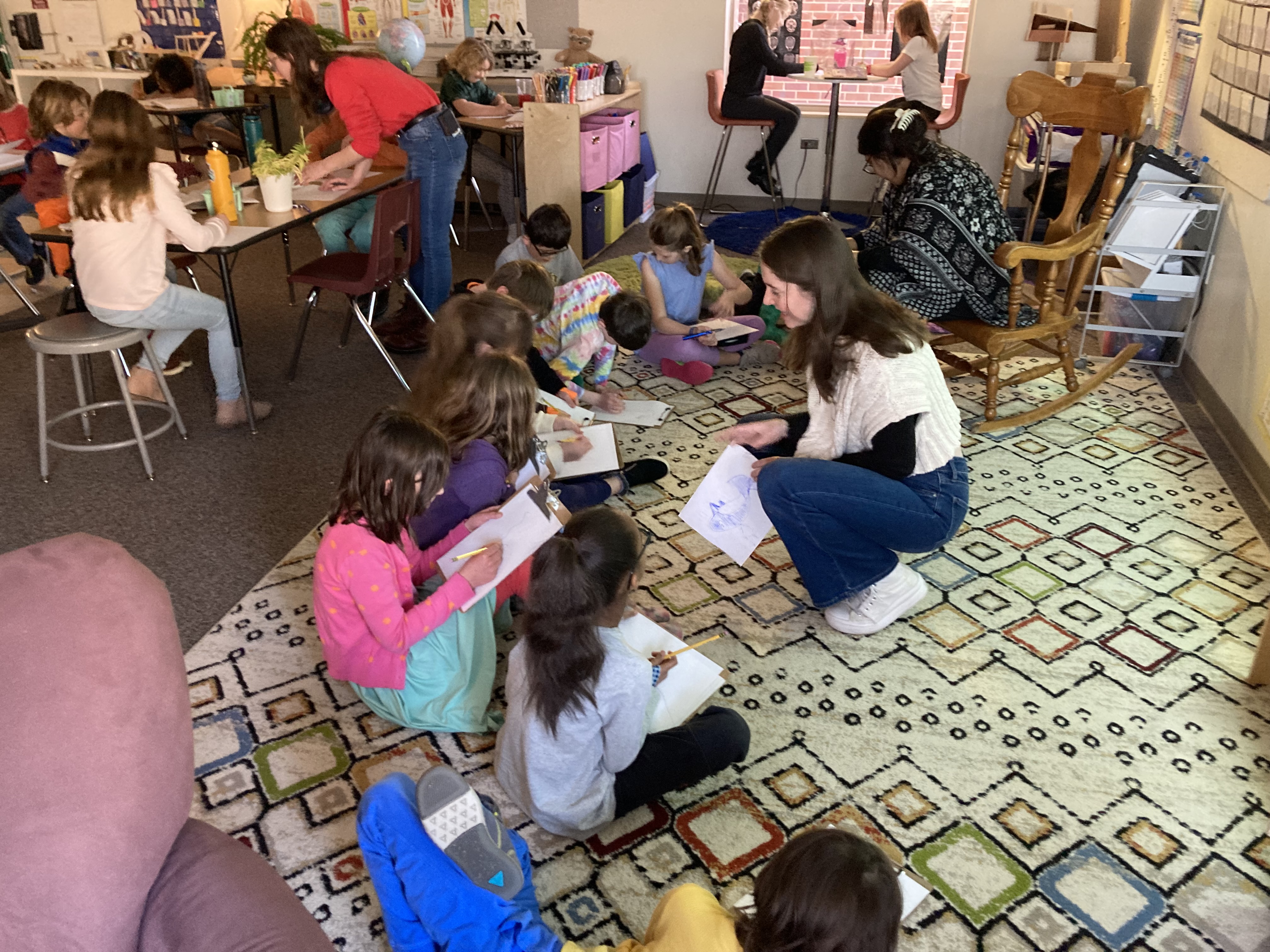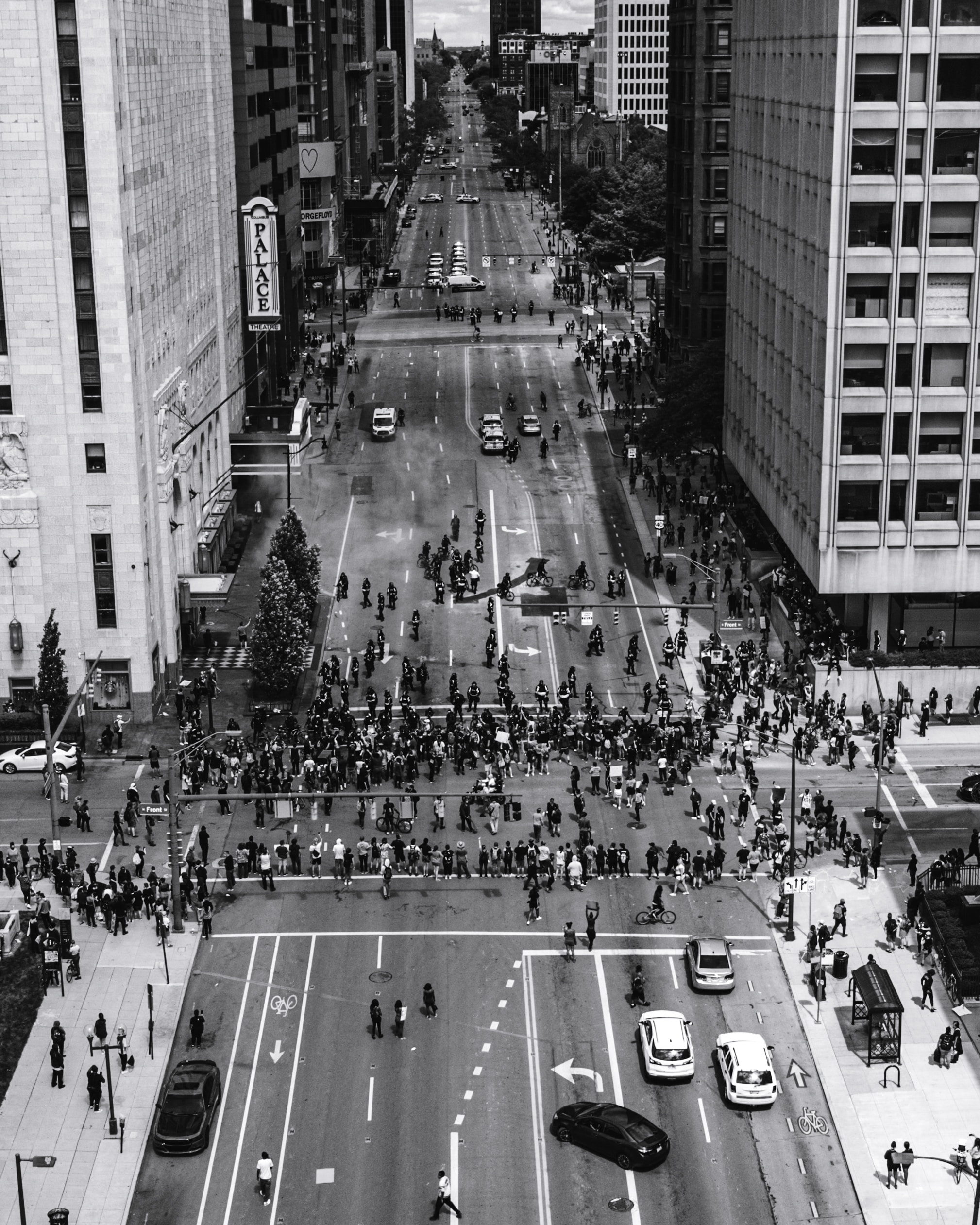Literacies and Rhetorics of Mutual Aid
By: Logan Middleton, Teaching Assistant Professor, University Writing Program

Photo by Amador Loureiro on Unsplash
Last winter, I taught a First-Year Writing course titled “Literacies and Rhetorics of Mutual Aid.” While the course was formally registered as a WRIT 1122 course, one of two required writing courses that first-year students must take, we used writing, literacy, and rhetoric to explore topics related to mutual aid.
What is mutual aid, you may ask? According to scholar-activist Dean Spade, mutual aid constitutes “collective coordination to meet each other’s needs,” the likes of which stems from the inability for our existing social structures to do so. As an “inherently anti-authoritarian” set of practices, mutual aid not only rejects those charity models of social services often deployed by local governments and non-profits, but actively engenders solidarity; movement building; and horizontal decision-making among those most impacted by interlocking oppressions.
Throughout the course, students learned about theories and praxes of mutual aid through historical case studies about the Black Panthers, Young Lords, and Umoja Shantytown Village as well as readings, videos, and podcasts composed by activists, organizers, and cultural workers. Students additionally completed project-based assignments in which we worked together as an entire class (of 18-19 students) to enact some sort of project addressing some sort of mutually-decided need or issue in our campus community. One section of the class, for example, partnered with Happy Tampers, a student group that seeks to promote period education on campus and to increase the availability of sustainable menstrual products at DU and beyond. In collaboration with Happy Tampers, we carried out a fundraiser and supply drive through which we raised over $300 for the organization to put toward these ends.
As an instructor, I found it imperative for students to hear from community organizers engaged in mutual aid work. Thanks to generous funding from CCESL and DU Grand Challenges, I was able to invite—and more importantly, compensate—four such individuals from across Turtle Island to participate in a virtual panel on mutual aid work. They were as follows:
- Annie Zean Dunbar, a researcher, educator, social worker, artist, and doctoral candidate in social work at the University of Denver’s Graduate School of Social Work.
- Spencer Davis, organizer with Little Read Books, a revolutionary socialist political education collective in Denver
- Michaela Tyus, organizer with Feed the Block Inland Empire, a mutual aid collective in California’s Western Inland Empire
- Jessennya Hernandez, a brown Xicana PhD candidate at the University of Illinois at Urbana-Champaign, first generation college/ grad student from Southern California, and organizer with Feed the Block Inland Empire.
Over the course of an hour-and-a-half, Zean, Spencer, Michaela, and Jessennya spoke with each other and our WRIT 1122 courses about their mutual aid work; the pleasures and challenges of
community organizing; and much, much more. So too did students participate in a virtual Q&A with panelists in which they posed questions about plugging into liberatory movement work as well as strategies and tactics for doing community-based work at the University of Denver.
Thanks, CCESL, for this wonderful opportunity!


